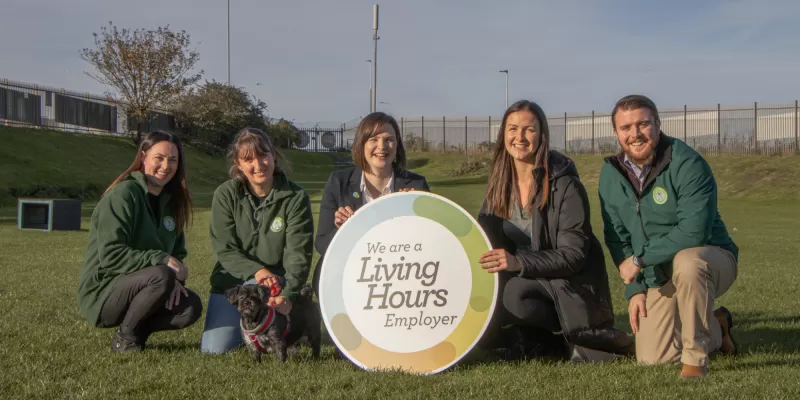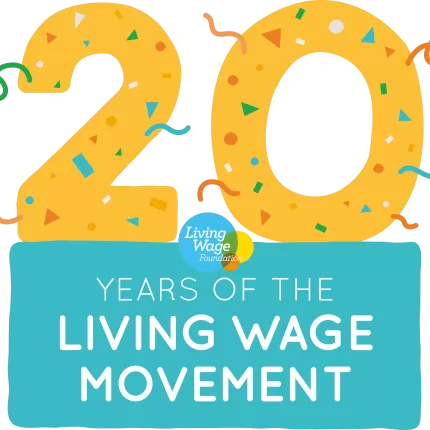The campaign for a real
Living Wage
The Living Wage campaign is one of the most successful campaigns of the past quarter of a century. The campaign for a Living Wage has cross party political support and is a movement of independent businesses, organisations and citizens who believe a hard day’s work deserves a fair day’s pay.
It was started by Citizens UK - the national home of community organising, in 2001. Together with communities and activists across the country we have been campaigning since - to ensure that everyone can earn a real Living Wage that meets living costs, not just the government minimum. Today over 15,000 UK Employers are signed up because they want to do the right thing by workers.
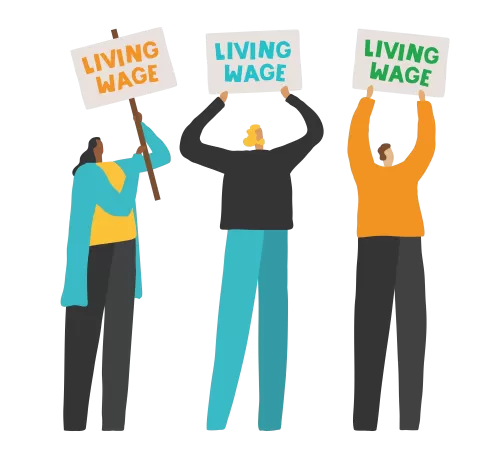
How did it all begin?
The Living Wage was born from a simple idea – that all working families need, and deserve, a wage that covers the cost of living and meets everyday needs. Twenty years ago, in East London, many workers found this was not the case.
A brief Living Wage timeline...
2001 - The roots of the campaign
The movement began at a meeting in East London, when the grassroots organisation Citizens UK brought together churches, mosques, schools and other local institutions to talk about the issues affecting their communities. One issue came up again and again – low pay.
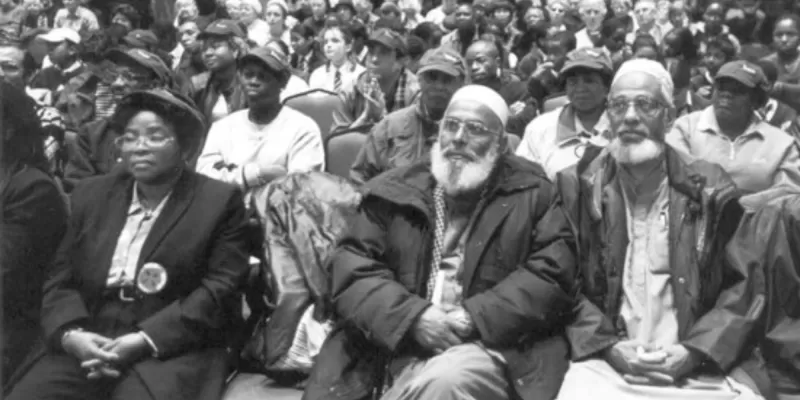
2005 - The need for a London Living Wage
At the time the government’s minimum wage was just £3.70 an hour. Cleaners working for some of the richest financial institutions in the world were struggling to keep their heads above water, often working two or more jobs and unable to spend time with their children and partners. And nowhere more so than in London, where housing and childcare costs are much higher than in other parts of the country.
Working with community organisers they decided to act, and from that meeting a powerful movement of faith leaders, trade unions and community organisations came together to call on major employers in the capital to pay their staff a London Living Wage.
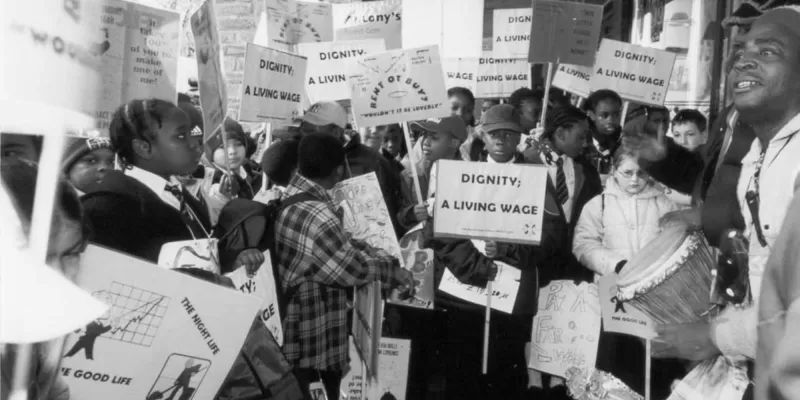
We start winning
The campaign also called on employers to pay their outsourced cleaners, caterers and security guards working a wage that met their everyday needs. Supporters held rallies and charity music gigs. A big march down the Mile End road called for all staff working in East London hospitals to be paid a Living Wage. These hospitals were among the first employers to join our movement. Followed by local schools and big City firms.
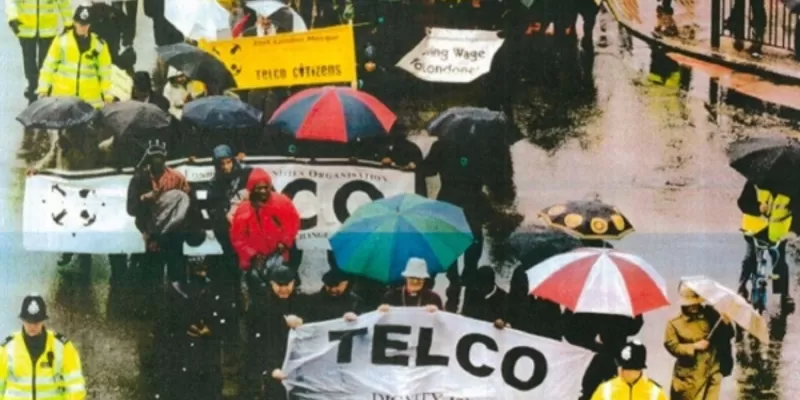
2011 - The movement goes national
In 2011 the movement went national. We launched the first UK Living Wage rate, and set up a Living Wage Foundation to recognise and celebrate the businesses that choose to go further than the government minimum.
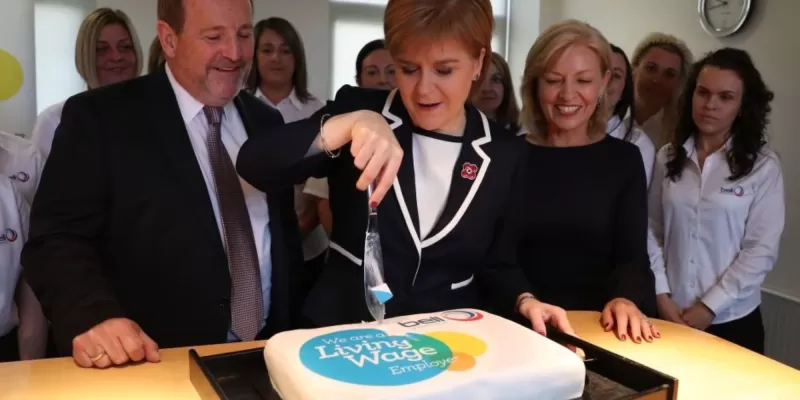
2012 - The Olympics
At a major public assembly in 2004, Citizens UK persuaded the Mayor of London to help champion the Living Wage across the capital. Soon, low paid workers and community leaders were negotiating to make sure big projects and in 2011 the movement went national. We launched the first UK Living Wage rate and set up a Living Wage Foundation to recognise and celebrate the great businesses that choose to go further than the government minimum.
The Living Wage has since gained support from successive London Mayors, MPs across all parties and the Scottish Government - helping to grow the movement across all four nations of the UK.
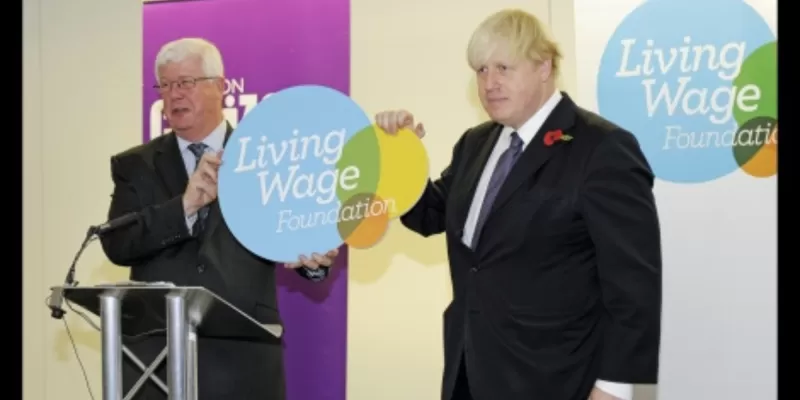
2016 - Government rebrands their minimum wage
Living Wage Employers found that paying a decent wage, as well as being the right thing to do, had real business benefits. They talked of lower staff turnover and a better bottom line.
Staff felt valued so they went the extra mile. The more Living Wage employers talked about the benefits, the more others wanted to get involved. And in 2016 the Government increased the minimum wage for over-25 year olds (now over 23 year olds). They called the new higher rate a ‘National Living Wage’. The problem is that the government minimum isn’t based on what people need to live on.
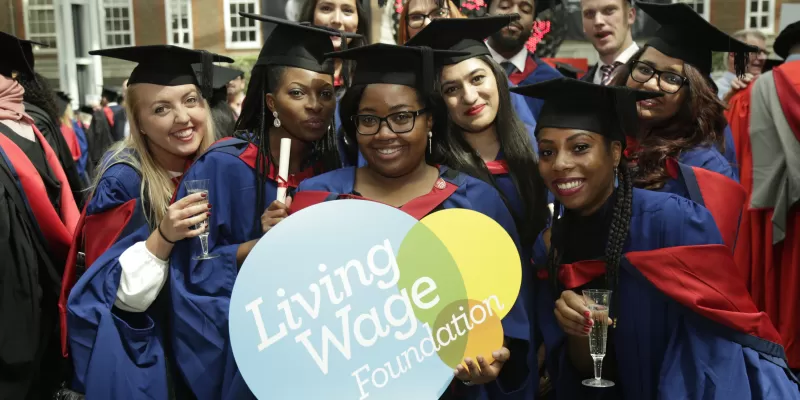
2020 - Record-breaking growth In spite of the pandemic
In spite of the pandemic, the Living Wage Foundation see's record-breaking growth in the number of accrediting Living Wage Employers, with many businesses more persuaded to support staff during a difficult time.
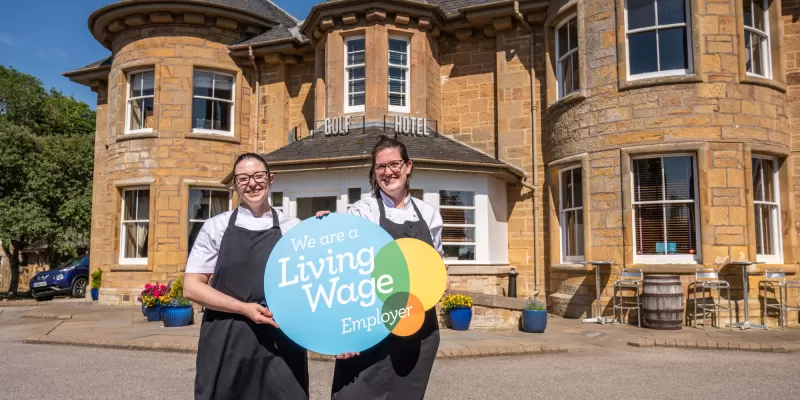
Where are we now?
With more than 3.5 million people paid less than the real Living Wage that meets the cost of living, the job is far from done. For people paid the real Living Wage it means the difference between being able to afford the things you need for a decent standard of living, and just getting the government’s minimum – things like healthy food, a warm home, and a birthday treat for your children. Over 15,000 organisations across all sectors have joined our movement, including half of the FTSE 100 and household names like the Houses of Parliament, Nationwide, Oxfam, ITV, Chelsea Football Club and LUSH.
The Living Wage Foundation has since also launched other accreditation initiatives such as Living Hours, to tackle in-work insecurity and provide workers with a guaranteed number of working hours and compensation when shifts are changed.
